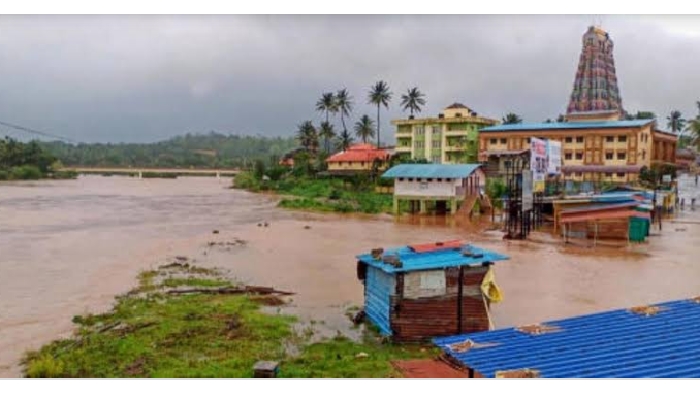
Search
Man held for assault on constable over road crash duel
February 26, 2011
Mangalore, February 26: Personnel of Barke (Gandhinagar) police on Thursday arrested Chandrahas (44), resident of Gundi House, Ballalbagh in connection with assaulting Akbar Basha, an armed police constable attached to District Armed Reserve on February 20 at Ballalbagh.
A group of five to six persons assaulted Basha when he went to shift two injured persons, whose motorcycle collided with departmental jeep that he was driving, to the hospital.
Background:
It was a rough initiation in to the world of policing for IPS probationary officer Abhinav Khare who was nearly manhandled by an irate crowd after an official vehicle in which he was travelling collided with a motorcycle causing grievous injuries to two persons at Ballalbagh in the city here on Sunday.
The crowd manhandled Akbar Basha, a District Armed Reserve police constable who was driving the vehicle when the accident took place.
The accident took place around 3.15pm when Akbar took a right turn at Ballalbagh junction median and crashed in to the oncoming motorcycle driven by Sandeep and Joel Crasta riding pillion. The impact of the accident was such that both were thrown off the motorcycle and Joel ended up on the steps of a nearby medical store in the basement of a building. A crowd that gathered at the spot manhandled Akbar and advanced menacingly on Abhinav.
Efforts by the probationary officer to explain the procedure to the crowd did not cut ice with them, some of whom were in an inebriated condition and who demanded that he summon the driver, who by then had left the spot with the victims to the district government hospital, and hand him over to them. Abhinav asked the crowd to register a complaint against the errant driver based on which the jurisdictional police would initiate action against him.
Abhinav reported to the DK rural police unit for his probationary training on Saturday.
The fact that he did not know the local language and the crowd did not understand Hindi, the language he spoke only complicated issues. It was the timely intervention by the media which saved Abhinav from the crowds ire and he later left the spot in another departmental vehicle, by which time senior police officials including Mangalore ACP Ravindra K G arrived.
ACP Ravindra assured the protesting crowd that action would be initiated against the departmental driver. In a related development, the Barke police have registered a case against the group that beat up Akbar on charges of preventing a public servant from discharging his duties and assaulting him while on duty and efforts are on to round them up. Traffic West police are separately investigating the case against Akbar, who allegedly caused the accident.







Comments
Add new comment